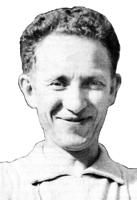
|
The Society of Folk Dance Historians (SFDH)
Horo, Hora, Oro, Kolo
[
Home |
About |
Encyclopedia | CLICK AN IMAGE TO ENLARGE |

|
There exists a tremendous confusion among folk dancers. It seems that anything danced in a circle, even if it be a Scandinavian dance, is called by them kolo. Kolo does mean circle in most Slavic languages, and the Serbian and Croatian circle dances are called kolos.
Some east Serbians and the Macedonians call their circle dance forms oro (or khoro).
The Romanians call their circle dances hora (or khora), and so do the Albanians.
The Bulgarians call their circle dances horo.
The Israelis call their circle dances hora (or horra with two 'r's") or debka.
The Arabs call their circle dances debka or debki or dubke.
The Armenians call their circle dances bar.
The general name for Greek circle dances is horo (or khoro).
The origin of the word is Greek, and from it is also derived the English word "chorus" ("khoros" in Greek). So – here is hoping that when a folk dancer will do a bar, or debki, or oro, he will not call it a kolo or cola.
DOCUMENTS
- Folk Dance – What the . . .?, an article.
- What is Folk Dance?, an article.
- Vyts Beliajus, an article.
Adapted from "Horo, Horra, Oro, Kolo, Khoro" by Vyts F. Beliajus
Viltis Magazine, October/November 1970, Volume 29, Number 3, V. F. Beliajus, Editor.
This page © 2018 by Ron Houston.
Please do not copy any part of this page without including this copyright notice.
Please do not copy small portions out of context.
Please do not copy large portions without permission from Ron Houston.